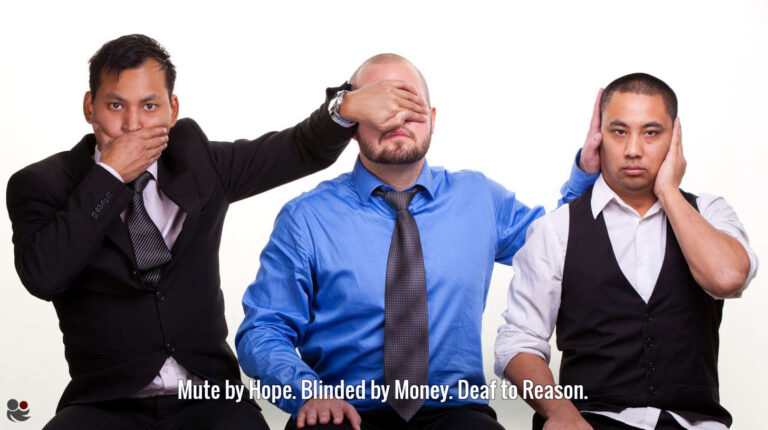
To the punter, it’s him against the bookmaker. To her, it’s a business model to understand.
1. What is Gubbing?
2. Why Gubbing Exists in the First Place
3. What Does It Mean to Be Gubbed?
4. Gubbing Is a Defensive System, Not a Punishment
5. False Positives: Gubbed Without Being “Sharp”
6. A Gubbing Journey: How A Truly Normal Punter Got Flagged
7. Can I Avoid Being Gubbed?
8. Myths That Don’t Work to Avoid Being Gubbed
9. What Gubbing Reveals About the Bookmaker Business
10. What You Should Take Away from This
1. What is Gubbing? ⤴️
Have you ever heard of gubbing?
Gubbing is a relatively new British betting slang term, first appearing around 2016 and quickly gaining traction across UK betting forums – particularly within arbitrage, matched betting and value betting communities.
Our primer on matched betting explains how punters profit from bookmaker promotions.
If you’re unfamiliar with the logic behind value bets, start with our clear definition of value betting – the cornerstone of any profitable strategy: What is Value? What is Value Betting?
Curious how risk-free methods like arbitrage betting fit into the picture? Our guide explores whether it’s legal and sustainable: Is Arbitrage Worthwhile Pursuing? Is Arbitrage Betting Legal?
‘Gub’ is the Scots word for mouth – and to ‘gub’ someone originally meant to shut them up by force, often with a strike to the face. It evolved into a slang verb meaning to thrash, beat soundly, or exhaust completely. The adjective form, gubbed, can describe someone who’s either been decisively defeated or utterly drained.
In today’s betting context, gubbing refers more narrowly to being soft-banned or limited by a bookmaker, typically after demonstrating sharp or unprofitable behaviour (from the bookie’s perspective).
The term isn’t formal. Bookmakers never use it in official communications – they’ll say your account is “subject to restrictions” or “no longer eligible for promotions.” But among punters, gubbed captures both the frustration and the inevitability of being flagged by the system.
How Common Is Being Gubbed?
Soccerwidow wouldn’t be Soccerwidow if we didn’t ask: is being gubbed truly common, or just folklore spun by punters who want to appear sharper than they are?
So, we asked ChatGPT to do a thorough research scan. The answer? There are hundreds of active threads, forum posts, and discussions on the topic.
A Few Examples:
- “I’m restricted to pennies. It’s ridiculous.” – Racing Forum [1]
- “They don’t like winners… especially if you’re up over thousands of bets.” – Reddit: r/sportsbook [2]
- “If you’re a sharp bettor whose unit size is $250-$500 and you’re limited to $25-$50 per bet, you’re basically banned.” – Reddit: Sportsbooks defend practice of limiting [3]
It quickly became clear that gubbing is not rare. It’s part of the modern betting landscape, especially for those who use data, discipline, and systems.
The Natural Next Question
After reviewing dozens of these threads, I asked ChatGPT a follow-up: “What are the most viable strategies for avoiding gubbing?”
Here were the most consistently suggested tips:
- Don’t overuse promotions – Claiming every free bet and boost draws attention.
- Avoid always betting best prices – Especially just after odds drift or before close.
- Mix in less “sharp” behaviour – Occasional accumulators or recreational markets.
- Spread activity – Bet across multiple bookmakers and vary your staking profile.
- Don’t chase only value – A purely mechanical value profile is easily flagged.
In the chapters that follow, we’ll explore why these behaviours matter, how bookmakers detect them, and what gubbing really tells you about how the betting ecosystem operates.

2. Why Gubbing Exists in the First Place ⤴️
Before we go deeper into how gubbing works, let’s clarify something critical: we are talking about bookmakers here, not exchanges. This difference matters!
Bookmakers are businesses that offer fixed-odds bets to the public. They earn their profits from the overround built into their pricing models – that is, they offer slightly worse odds than the true probabilities, and over time, the difference is their edge.
Exchanges, on the other hand, don’t take a position against the bettor. They are platforms that allow users to bet against each other, charging a commission on winning trades. They don’t care who wins or loses – only that money flows through their system.
So when we talk about gubbing, we’re referring to a scenario where a business designed for profit through customer losses decides that your behaviour is too precise, too sharp, or too systematically successful to continue serving you under standard conditions.
The Bookmaker’s Perspective
So if you want to understand why bookmakers limit, restrict, or gub accounts, you have to stop thinking like a gambler or even a strategist. You need to think like a bookmaker: someone whose job is not just to balance a book, but to detect, contain, and reduce profit leakage.
Gubbing is not personal. It is algorithmic. It is the system doing its job.
This article will help you see through that lens – to understand what gubbing reveals about the infrastructure of betting, and whether your long-term strategy might be better served elsewhere.
Our foundational article breaks down exactly why bookmakers close accounts or slash stakes — and what that tells us about their business logic. It’s a brutally honest look behind the curtain: Why Do Bookmakers Ban Their Customers, Close Accounts or Limit Stakes?
3. What Does It Mean to Be Gubbed? ⤴️
Being gubbed means your betting account has been restricted.
This might include:
- Stake limits (e.g., maximum £1 bets)
- Removal of access to promotions or free bets
- Exclusion from price boosts, enhanced odds, or accumulators
- Markets disappearing or unavailable to your account
- Reduced odds compared to what others see
- Bets accepted only after a delay (or manually reviewed)
- Full suspension from certain bet types or sports
- Promotions shown but not actually applied upon qualifying
It is not the same as being banned for fraud or breaching terms. You can still log in, place bets, and withdraw funds. You just can’t bet in a way that’s profitable.
Gubbing is the bookmaker’s way of saying: You’re not banned, but you’re no longer welcome to play the way you were. We are an entertainment business. Get entertainment and use our services – but pay for them (by losing).
A Message from the Bookmaker (If They Spoke Honestly)
We are even honest about that. We always write everywhere and openly that you should not gamble more than you can afford to lose.
And if you wouldn’t risk large amounts – sometimes everything you have for the month – at once, but instead split your play into smaller chunks, say 1% per bet, then you would enjoy our services for much longer.
Of course, at the end of the month you might not have your whole starting bank anymore, maybe 10% less, but this is our pay-as-you-go fee for using our entertainment platform.”
That is, in essence, what gubbing tells you: you’ve stepped outside the role of the entertained and into the role of the extractor. The system is designed to spot and limit that.
4. Gubbing Is a Defensive System, Not a Punishment ⤴️
Bookmakers do not want to gub customers. They want long-term, profitable users (from their point of view – profitable to them, not to the punter). And when an account behaves in ways associated with long-term losses to the bookmaker, it is flagged.
The Bookmaker’s Business Logic
Modern bookmaking relies on margin. This margin is small on each bet, but consistent over thousands or millions of users.

The danger comes from those who:
- Bet selectively only when odds are in their favour
- Arbitrage across bookmakers or exploit stale prices
- Use tools to automate sharp behaviour
- Consistently back odds that later shorten (closing line value)
- Avoid promotions unless they can be systematically exploited
- Show unusually high ROI across low-margin markets
- Never bet on emotional or recreational selections (e.g., national teams, TV specials)
- Mimic known arbitrage profiles through bet timing or stake sizing
These behaviours don’t just reduce margin. They often indicate intent: the bettor isn’t playing for entertainment, but attempting to extract value mechanically. The longer they go undetected, the more they cost the bookmaker.
Detection Is Automatic
In the past, bookmakers might have searched for punters that posed a risk to the business manually. Today, artificial intelligence (call it algorithms) handles the detection of “risks to the business.”
These models:
- Track your bet types, times, stakes, and market selections
- Log device and location patterns to detect linked or duplicate accounts
- Monitor sequences of bet outcomes relative to market movement
- Compare your profile to thousands of others using machine learning
This is why, these days, it’s entirely possible for punters to be gubbed without ever intending to act like professional gamblers. These are the so-called ‘false positives’ – flagged not for deliberate strategy, but simply for accidentally fitting a behavioural blueprint.
5. False Positives: Gubbed Without Being “Sharp” ⤴️
Please remember: you are not judged individually. You are a data point in a behavioural cluster. If your activity matches the pattern of others who have historically undermined profitability, you’ll likely be flagged – not because of what you’ve done, but because of what you resemble.
You may be:
- Risk-averse and selective
- Naturally disciplined in your staking
- Using comparison sites out of habit, not strategy
- Backing price boosts simply because they offer the best odds at the time
If that’s enough to mimic the patterns of value hunters, the system doesn’t care why you’re doing it – only that it recognises what you’re doing. And from its perspective, you’re indistinguishable from someone extracting value on purpose.
6. A Gubbing Journey: How A Truly Normal Punter Got Flagged ⤴️
Let’s fictionalise a typical forum story. This one’s about Steve – a lifelong EPL fan who knows every team inside out, and who, with uncanny 95% accuracy, can predict match results – yet he’s still far from a pro.
Steve signs up with a major bookmaker. He:
- Deposits £200
- Uses odds comparison tools out of habit
- Takes price boosts on favourites he already fancied
- Avoids accumulators, specials, or markets he doesn’t understand
He’s not a system trader. Just someone with a decent gut feel and a cautious streak.
Yet, within 30 days, Steve has:
- Claimed 3 promotions (why not?)
- Netted a modest £120 profit
- Placed 87% of his bets on odds that later shortened
To the bookmaker’s AI, this profile looks nearly identical to hundreds of matched bettors or arbitrageurs. So Steve is gubbed. Not because of what he won – but because of how he behaved.
You might ask: Would he have been gubbed even if he lost money?
Yes. Because his behaviour matched the blueprint of someone who, statistically, tends to win in the long run.
7. Can I Avoid Being Gubbed? ⤴️
The honest answer? Not entirely – not if you’re trying to win more than you lose. But you can delay it, reduce the likelihood, and crucially, make strategic choices with eyes wide open.

Below are the most viable strategies from punters who’ve survived longer than most:
Most Viable Strategies to Avoid or Delay Gubbing
-
Mix Sharp Bets with Recreational Action
Include casual-looking parlays, favourites, or bet boosts alongside value bets.
This disguises intent and disrupts clear profiling. -
Vary Stake Sizes and Bet Timing
Avoid always betting round numbers (e.g., £50 flat stakes).
Don’t consistently bet early market prices – that behaviour is associated with sharp bettors and traders. -
Avoid Obvious +EV Patterns
Don’t hammer weak lines or pricing errors repeatedly.
Spread bets across markets and types – even if ROI drops slightly, account life often increases. -
Stay Under Market Limits
Don’t always max out the highest allowed bet – especially on niche markets.
Stay below the threshold that triggers manual or algorithmic review. -
Use Multiple Books – Carefully
Open accounts gradually and spread activity.
Don’t fire big bets immediately on new accounts; ease into activity like a typical casual user. -
Limit Promo and Bonus Abuse
Avoid only betting during promotions or extracting bonus EV surgically.
Bookmakers are sensitive to this and it often leads to fast restriction. -
Delay Cashing Out Big Wins
Withdrawing immediately after a large win may flag accounts.
Consider leaving part of the balance in the account and continuing smaller activity. -
Avoid Betting Tools or Bots That Leave Obvious Traces
Using API calls or integrated odds tools tied to your account can flag automation.
Manual input and native site usage seems safer in long-term account preservation. -
Rotate Bet Types and Markets
Don’t always bet on player props, or unders, or draw markets.
Mix in first-half bets, team totals, corners – it breaks the signal pattern. -
Accept That Every Account Has a Lifespan
Ultimately, if you’re profitable, you will get gubbed.
The game isn’t to avoid it forever – but to extend viability and plan your progression (to exchanges, syndicates, private data models, etc.).
8. Myths That Don’t Work to Avoid Being Gubbed ⤴️
There’s no shortage of well-meaning advice online – but not all of it holds up. Some strategies get repeated so often they’ve become gospel, despite being ineffective or outright counterproductive.
Some believe placing accumulator bets on longshots will convince the bookmaker that you’re a casual punter. But unless you lose consistently, this won’t protect you. A sharp bettor mixing in accas doesn’t look like a mug – it looks like a sharp trying to hide.
Myth #2: “Always Leave Money in the Account”
It’s true that withdrawing immediately after a win can raise suspicion. But simply leaving a balance untouched doesn’t prove you’re recreational. Bookmakers look at betting patterns, not bank balances.
Myth #3: “Stick to the Big Leagues – They Don’t Care”
Premier League matches may be less prone to limits than obscure markets, but betting at scale on any market where you consistently beat the odds will get noticed. Size and frequency still matter.
Myth #4: “They Only Gub Winners”
Plenty of punters get gubbed while losing overall. Why? Because they behave like people who eventually win. The system doesn’t care about your P&L – it cares about your statistical fingerprint.
Myth #5: “Use VPNs or Fake Details to Evade Limits”
Bookmakers have extensive fraud detection systems. Using multiple identities or masking IPs may buy time, but once linked, all accounts may be blacklisted. Worse, it breaches terms and voids winnings.
9. What Gubbing Reveals About the Bookmaker Business ⤴️
Being gubbed doesn’t mean you’re a genius. It means your behaviour matched a profile the system is designed to suppress.
It reveals:
- Bookmakers are risk averse – They don’t gamble. Their job is to neutralise unpredictability, not embrace it. Anything that adds volatility to their margin is a risk to be removed, not managed.
- Profitability isn’t enough; sustainability matters – One-off wins don’t scare them. But consistent behaviours that could become profitable? Those do.
- Entertainment is the metric – Bookmakers optimise for volatility, randomness, and emotional play – not long-term rational engagement.
- False positives are an acceptable cost – The model prefers to wrongly limit a few casuals than risk allowing sharp bettors to roam unchecked.
- Bookmakers segment punters – Accounts are categorised and shaped based on expected lifetime value, not fairness or merit.
Your defence?
Understand that the bookmaker’s business is built for entertainment. Accept the system’s constraints – then decide how, or whether, to continue playing with bookmakers, or explore alternatives such as exchanges.
Gubbing is the bookmaker’s system working as intended. Now you know why it’s there and how it works.

How Gubbing Has Evolved Since 2012
| Topic | 2012 (Poll Survey Results & Early Case Studies) | 2025 (Gubbing Explained—Modern Practices & Industry Changes) |
|---|---|---|
| Terms Used | “Ban”, “limit”, “close” | “Gubbing” (stake restrictions), ban |
| Reasons | Winning, arbing, value bets, bonus abuse | Same reasons, but including AI profiling |
| Detection | Manual pattern checks | AI, big data, KYC, algorithmic profiling |
| Consequences | Ban or stake limits | Stake limits as default, occasional bans |
| Advice | Spread bets across bookies, avoid arbing | Don’t chase top price, blend stakes, use exchanges |
| Core Message | Bookies don’t want persistent winners | Gubbing is now a system-wide tool |
The reality of bookmaker bans and stake-limiting has evolved over the years. Our summary table (above) contrasts today’s “gubbing” practices with the industry landscape back in 2012.
For historical context and first-hand accounts from the early days of account restrictions, you can read our original article:
Why do bookmakers ban their customers, close accounts or limit stakes?
Understanding how these practices have changed helps every punter make more informed choices.
10. What You Should Take Away from This ⤴️
Gubbing is not a badge of honour – nor is it a reason for despair. It is the algorithm’s way of saying: you don’t belong in the entertainment segment anymore.
If that happens to you, take it as confirmation. Confirmation that you’ve stepped beyond the casual. That your betting behaviour stands out not because of emotion or hope, but because of method.
But it also means the game has changed. From here on, the rules are different – and less forgiving. The casual tools, the bonuses, the easy edges are gone. The training wheels are off.
If you’ve read this far, you’re already ahead of most. You’ve learned to see the betting landscape for what it is: a network of systems, incentives, and risk controls. And in doing so, you’ve moved closer to becoming what Soccerwidow has always advocated: a thinking bettor, not a hoping gambler.
Whether you pivot to exchanges, refine your systems, or simply play smarter – the awareness you now hold is your edge.
Use it wisely.
Sources
[1] Racing Forum – “Restricted stakes” (2022)
▶️ https://theracingforum.co.uk/forums/topic/restricted-stakes/
Replies confirm this is now standard practice for profitable bettors. Offers various soft-touch strategies, including timing your bets to avoid early market detection.
⬆️ Return to article [1]
[2] Reddit – “Betting Limited” (2023)
▶️ https://www.reddit.com/r/sportsbook/comments/zadwb0/betting_limited/
Replies offer tips on timing bets, rotating between books, and avoiding live bet flagging.
⬆️ Back to reading [2]
[3] Reddit – “Sportsbooks defend practice of limiting” (2024)
▶️ https://www.reddit.com/r/sportsbook/comments/1ffcco9/sportsbooks_defend_practice_of_limiting/
The thread debates the distinction and shares practical advice on reducing bet size signals and spreading bets.
⬆️ Return to article [3]





